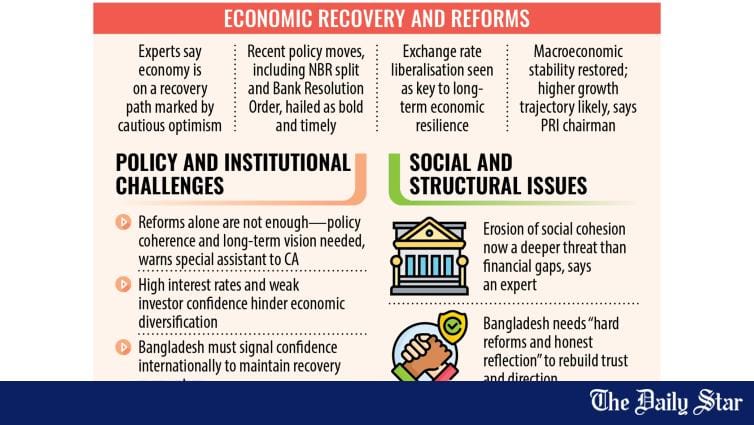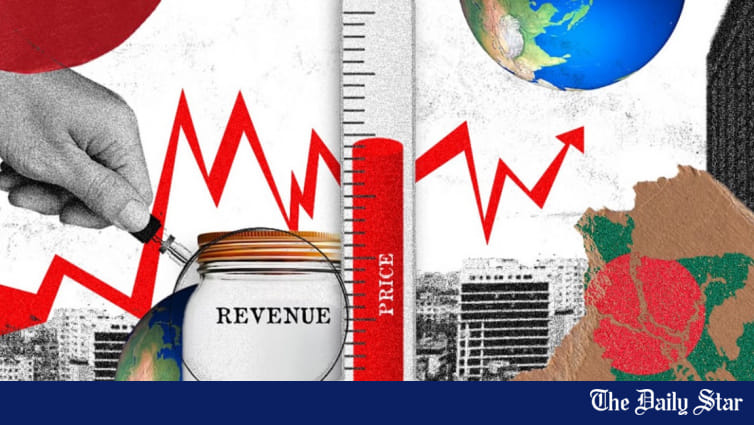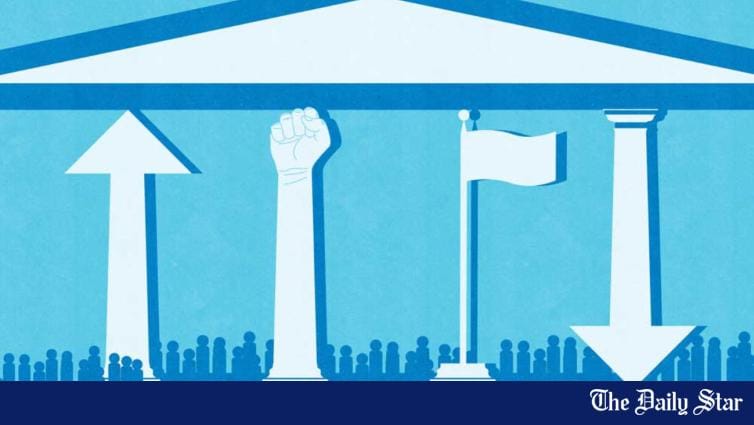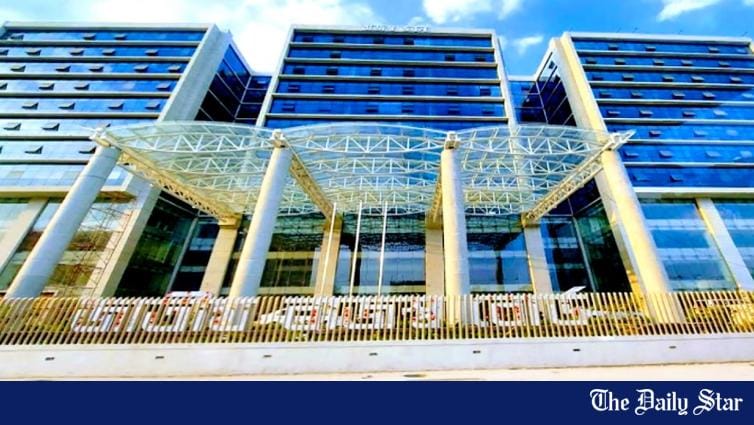- Copy to clipboard
- Thread starter
- #681
Saif
Senior Member
- Joined
- Jan 24, 2024
- Messages
- 15,397
- Reaction score
- 7,865
- Points
- 209
- Nation

- Residence

- Axis Group


IMF to release loan as Bangladesh to go for flexible exchange rate
According to sources at Bangladesh Bank, the IMF will disburse USD 1.3 billion in two tranches, which are expected to be received by June.
IMF to release loan as Bangladesh to go for flexible exchange rate
Staff Correspondent Dhaka
Published: 13 May 2025, 18: 47

The signage of Bangladesh Bank Reuters file photo
Bangladesh Bank has agreed to adopt a more flexible US dollar-taka exchange rate as the International Monetary Fund (IMF) is going to release two more installments of the ongoing USD 4.7 billion loan programme.
According to sources at Bangladesh Bank, the IMF will disburse USD 1.3 billion in two tranches, which are expected to be received by June.
Bangladesh Bank governor Ahsan H Mansur is scheduled to hold a press conference tomorrow, Wednesday, to provide further details. In a press release, the central bank said the press briefing may come with the official announcement over the loan installments. The governor will join it virtually from Dubai, United Arab Emirates.
Also, the IMF is likely to issue a statement on the decision to disburse the funds soon.
Speaking to two officials from Bangladesh Bank, it was learned that the current system for determining the dollar rate will remain in place, but there will be scopes for greater flexibility based on market demand.
The method of determining the exchange rate is known as a ‘crawling peg’ system. Here, the exchange rate may fluctuate by up to 2.5 per cent from the current rate of Tk 119 per US dollar. It means the dollar can be traded for as much as Tk 123.
Bangladesh entered the USD 4.7 billion loan programme with the IMF on 30 January 2023. So far, it has received USD 2.31 billion in three installments up to June 2024. The remaining USD 2.39 billion is yet to be disbursed.
Disbursement of the fourth installment came to a halt. The government officials said that two installments would be released together in June. However, it too was mired in uncertainty.
The authorities have been negotiating with the IMF over the exchange rate for nearly one month. An IMF mission visited Dhaka from 6 to 17 April, to review the second and third tranches of the loan programme, but left without reaching a negotiation.
Discussions continued during the IMF–World Bank spring meetings in Washington DC, from 21 to 26 April, but again without a negotiation.
Later, Bangladesh and the IMF held a two-day virtual meeting on 5 and 6 May, and it too ended without any consensus.
In response to an inquiry from Prothom Alo on 5 May, the IMF said in an e-mailed statement that their discussions with Bangladesh continued during the meetings in Washington DC. A virtual meeting was ongoing to accelerate the reform work under the loan programme.
Staff Correspondent Dhaka
Published: 13 May 2025, 18: 47
The signage of Bangladesh Bank Reuters file photo
Bangladesh Bank has agreed to adopt a more flexible US dollar-taka exchange rate as the International Monetary Fund (IMF) is going to release two more installments of the ongoing USD 4.7 billion loan programme.
According to sources at Bangladesh Bank, the IMF will disburse USD 1.3 billion in two tranches, which are expected to be received by June.
Bangladesh Bank governor Ahsan H Mansur is scheduled to hold a press conference tomorrow, Wednesday, to provide further details. In a press release, the central bank said the press briefing may come with the official announcement over the loan installments. The governor will join it virtually from Dubai, United Arab Emirates.
Also, the IMF is likely to issue a statement on the decision to disburse the funds soon.
Speaking to two officials from Bangladesh Bank, it was learned that the current system for determining the dollar rate will remain in place, but there will be scopes for greater flexibility based on market demand.
The method of determining the exchange rate is known as a ‘crawling peg’ system. Here, the exchange rate may fluctuate by up to 2.5 per cent from the current rate of Tk 119 per US dollar. It means the dollar can be traded for as much as Tk 123.
Bangladesh entered the USD 4.7 billion loan programme with the IMF on 30 January 2023. So far, it has received USD 2.31 billion in three installments up to June 2024. The remaining USD 2.39 billion is yet to be disbursed.
Disbursement of the fourth installment came to a halt. The government officials said that two installments would be released together in June. However, it too was mired in uncertainty.
The authorities have been negotiating with the IMF over the exchange rate for nearly one month. An IMF mission visited Dhaka from 6 to 17 April, to review the second and third tranches of the loan programme, but left without reaching a negotiation.
Discussions continued during the IMF–World Bank spring meetings in Washington DC, from 21 to 26 April, but again without a negotiation.
Later, Bangladesh and the IMF held a two-day virtual meeting on 5 and 6 May, and it too ended without any consensus.
In response to an inquiry from Prothom Alo on 5 May, the IMF said in an e-mailed statement that their discussions with Bangladesh continued during the meetings in Washington DC. A virtual meeting was ongoing to accelerate the reform work under the loan programme.



















